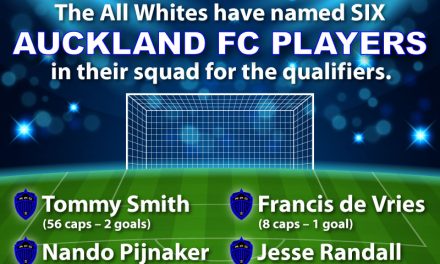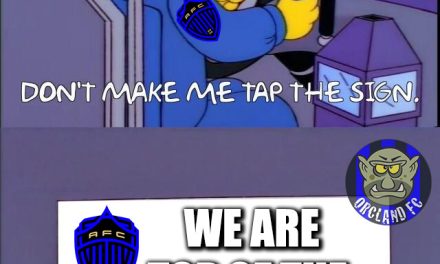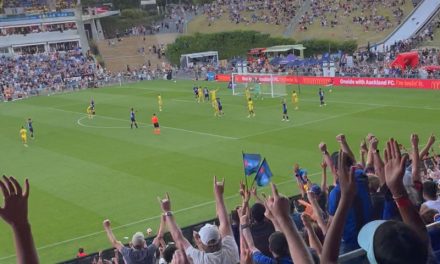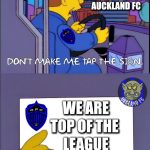Strategies for Managing Pressure in Auckland FC: Insights from Terry McFlynn and Ali Williams.
Terry McFlynn – Auckland FC – Director of Football
Ali Williams – Former All Black (and co-owner of Auckland FC)
Auckland FC Black Knight Club – April 2025
When asked about strategies for managing pressure, Terry McFlynn emphasized the importance of creating a supportive environment. He explained that the team has built an atmosphere of trust and care, addressing pressure-related challenges with the players the previous week. “We asked, ‘What is pressure?’ For me, pressure is about focusing on the solution,” Terry shared. By working toward solutions, the team can alleviate pressure. He praised the coach for doing a fantastic job preparing the team day in and day out, week after week.
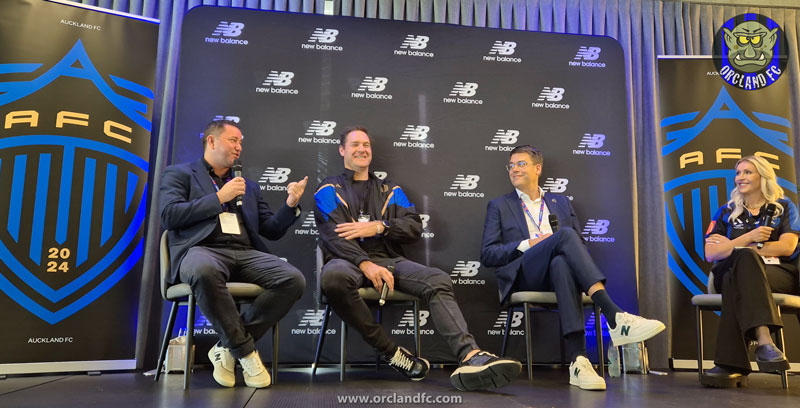
Terry also highlighted the team’s thorough preparation, noting that they’ve analyzed their opposition extensively. “Every team we’ll face from now until the grand final, we’ve played before, so there are no surprises,” he said. The goal is to minimize undue pressure in today’s high-stakes society, where external factors like social media can add stress. To counter this, the team educates players on managing outside pressures, encouraging them to turn off notifications or step away from social media when needed. The focus remains on the game itself – whether it’s 90 or 97 minutes – by breaking it into smaller, manageable sections.
“We tell the players to focus on winning each half,” Terry explained. “If you win the first half and the second half, you win the game.” This approach ensures the players are fully prepared while still enjoying the process. He added that the team breaks down their strategy into a game-by-game focus, sometimes even half-by-half, to keep things manageable.
Turning to Ali Williams, who has significant experience with pressure, he shared his mindset on the topic. “I’ve always had a saying: pressure is a privilege given to those who want to accept it,” Ali stated. He echoed Terry’s approach, encouraging players to walk toward pressure and find excitement in it. “Pressure can be an energy that helps you achieve things you didn’t think possible,” he said. Ali outlined two ways to handle pressure: either it becomes complicated, stripping away your natural abilities, or you simplify it. “Simplify, simplify, simplify, and use your natural energy to embrace the pressure,” he advised.
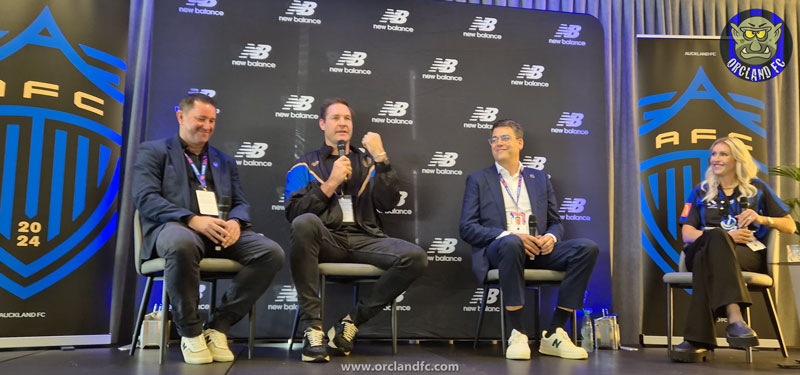
Ali emphasized that being in a high-pressure position is a privilege, especially for players with expectations placed on them. “They’re walking toward it, and they will master it, whether they go all the way or not,” he said. For Ali, the outcome isn’t the sole focus, it’s about how the players approach the challenge and demonstrate mental strength. “That mental resilience is one of our biggest virtues as Kiwis,” he noted, adding that the Kiwi mindset can make a powerful statement in football, not just in the A-League but globally.
Reflecting on lessons learned, Ali highlighted the importance of focusing on the process. “In pressure-driven situations, focus on the process, and the outcome will take care of itself,” he said, confirming that this approach aligns with the All Blacks’ mentality. He recalled moments when the best games were played without even glancing at the scoreboard, focusing instead on the small steps needed to succeed. While football differs, goals are more immediately visible, the principle of simplification remains key. “Do what you need to do, one step after the other, and you’ll get the result you want,” Ali advised.
The team has also taken a unique approach by bringing in mental coaches, a decision inspired by Ali’s conversations with others in the club. Ali credited the influence of Gilbert Enoka, a renowned mental skills coach for the All Blacks, whose methods have been instrumental. “I strongly insisted we needed that in our team because it gives us a power other teams might not have,” Ali explained. Despite initial budgetary concerns, the decision proved transformative. With mental skills coach Hamish Barton now on board, the team continues to grow. “Hamish is doing a fantastic job, constantly learning, while Terry pushes him, and he pushes the rest of us,” Ali said.
Ultimately, the role of a mental skills coach is to ensure clarity and focus. “It’s about having someone to check you—both personally and as a team—to make sure your head’s in the right place to do your best,” Ali concluded. This holistic approach to mental preparation is setting the team apart as they navigate the pressures of competitive football.

